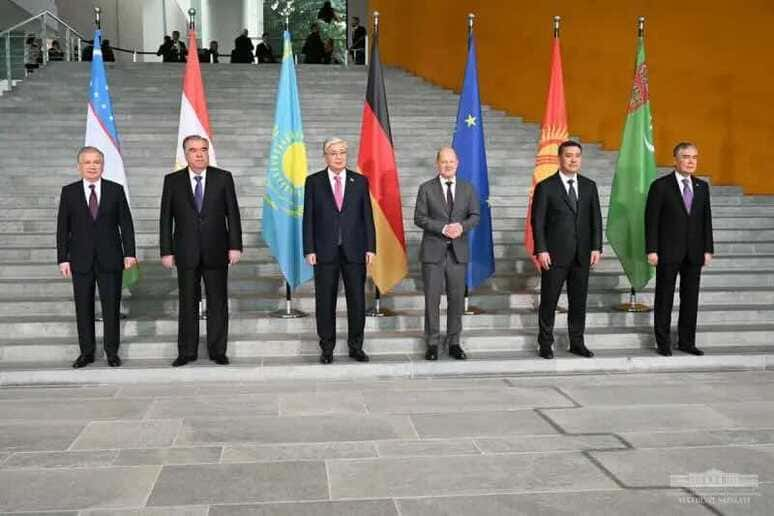Germany's Green Energy Diplomacy in Central Asia: Opportunities and Challenges
Key Ideas
- Historic visit of German Chancellor Scholz to Kazakhstan and Uzbekistan signifies shift in EU-Central Asia relations, with focus on renewable energy and hydrogen.
- Germany's engagement in green energy initiatives in Central Asia, including green hydrogen projects and critical raw materials mining, presents promising opportunities for both regions.
- Challenges such as lack of investment, high financing requirements, and EU frameworks on corporate responsibility pose obstacles to the successful implementation of green energy projects in Central Asia.
- The potential impact of EU frameworks like CBAM and CSDDD on Central Asia's economic and environmental landscape adds complexity to the partnership between the regions.
German Chancellor Olaf Scholz's recent visit to Kazakhstan and Uzbekistan has sparked discussions globally due to its historical significance in redefining relations between Berlin and Central Asian countries, particularly in the context of renewable energy and hydrogen. The trip highlighted a shift in EU-Central Asia dynamics, emphasizing green energy cooperation. Discussions during the visit centered around critical raw materials and green hydrogen, positioning Central Asia as a crucial partner in the energy transition for Germany and Europe. Germany's established presence in the region, exemplified by initiatives like the C5+1 partnership and strategic agreements on green hydrogen with Kazakhstan and Uzbekistan, indicates promising prospects for collaboration in the energy and mining sectors.
Investment in green energy projects, however, faces challenges such as funding gaps and high financing requirements. Projects like Hyrasia One and Uzbekistan's ambitious green hydrogen plant encounter difficulties in securing adequate financial support, hindering their realization. Additionally, EU frameworks on corporate responsibility pose regulatory hurdles, potentially affecting the economic landscape of Central Asia. Navigating these obstacles requires commitment from both German investors and European financial institutions to ensure the success of green energy initiatives in the region. The interplay between economic development, environmental responsibility, and political dynamics underscores the complex nature of Germany's green energy diplomacy in Central Asia.
Topics
Asia
Renewable Energy
Investment
Energy Transition
Green Economy
Diplomacy
European Union
Central Asia
Mining Sector
Latest News
